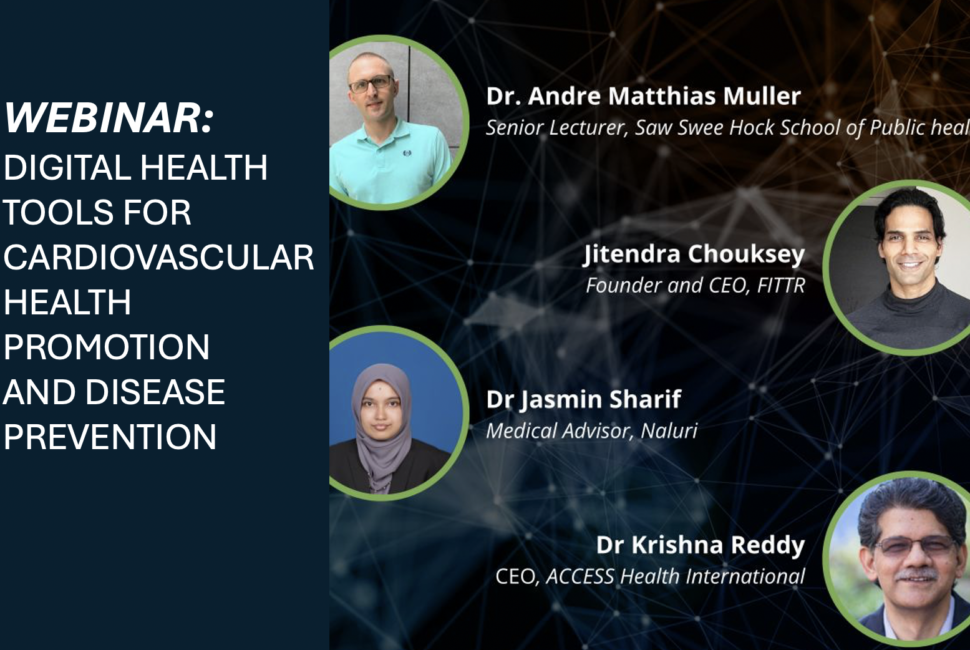ACCESS Health International is excited to share insights from our recent webinar titled “Digital Health Tools for Cardiovascular Health Promotion and Prevention,” held on June 13th. Experts gathered to explore the potential of digital innovations in promoting cardiovascular health and healthy living through primary care, with a particular focus on Southeast Asia.
The insightful discussion was led by Dr. Andre Matthias Muller, Senior Lecture, Saw Swee Hock School of Public Health, and on the panel were Mr. Jitender Chouksey, Founder and CEO, FITTR; Dr. Jasmin Sharif, Medical Advisor, Naluri; and Dr. N. Krishna Reddy, CEO, ACCESS Health International.
The discussion underscored the critical role of digital health tools, such as web-based classes and mHealth apps, in preventing cardiovascular disease (CVD) and fostering healthier lifestyles. It highlighted how health literacy impacts CVD outcomes, associating it with increased hospitalizations, higher mortality rates, and challenges in managing behavioral risk factors. Lifestyle modifications could prevent approximately 80% of CVD cases, emphasizing the need to empower individuals with accessible health information and personalized care through digital tools.
Challenges specific to Southeast Asia, including accessibility, affordability, and digital literacy, were acknowledged as barriers to effective digital health implementation. Strategies to address these challenges and ensure equitable access to digital health benefits were a key focus.
The panel explored critical features for effective digital health programs, such as personalization and user-friendly interfaces, and discussed challenges in ensuring equitable access, especially in lower-middle-income countries like India.
Looking to the future, advancements in AI and user interface design in digital health technologies are anticipated to improve uptake and health outcomes. Dr. Reddy envisioned greater integration of these tools into clinical practice to enhance patient care globally.Overall, the session underscored the transformative potential of digital health tools in improving cardiovascular health outcomes, highlighting the importance of innovation, accessibility, and ethical considerations in their development and implementation. Both Dr. Jasmin and JC stressed the necessity of personalization in digital health interventions, while Dr. Reddy emphasized the importance of user-friendly interfaces to ensure patient adherence and engagement.


